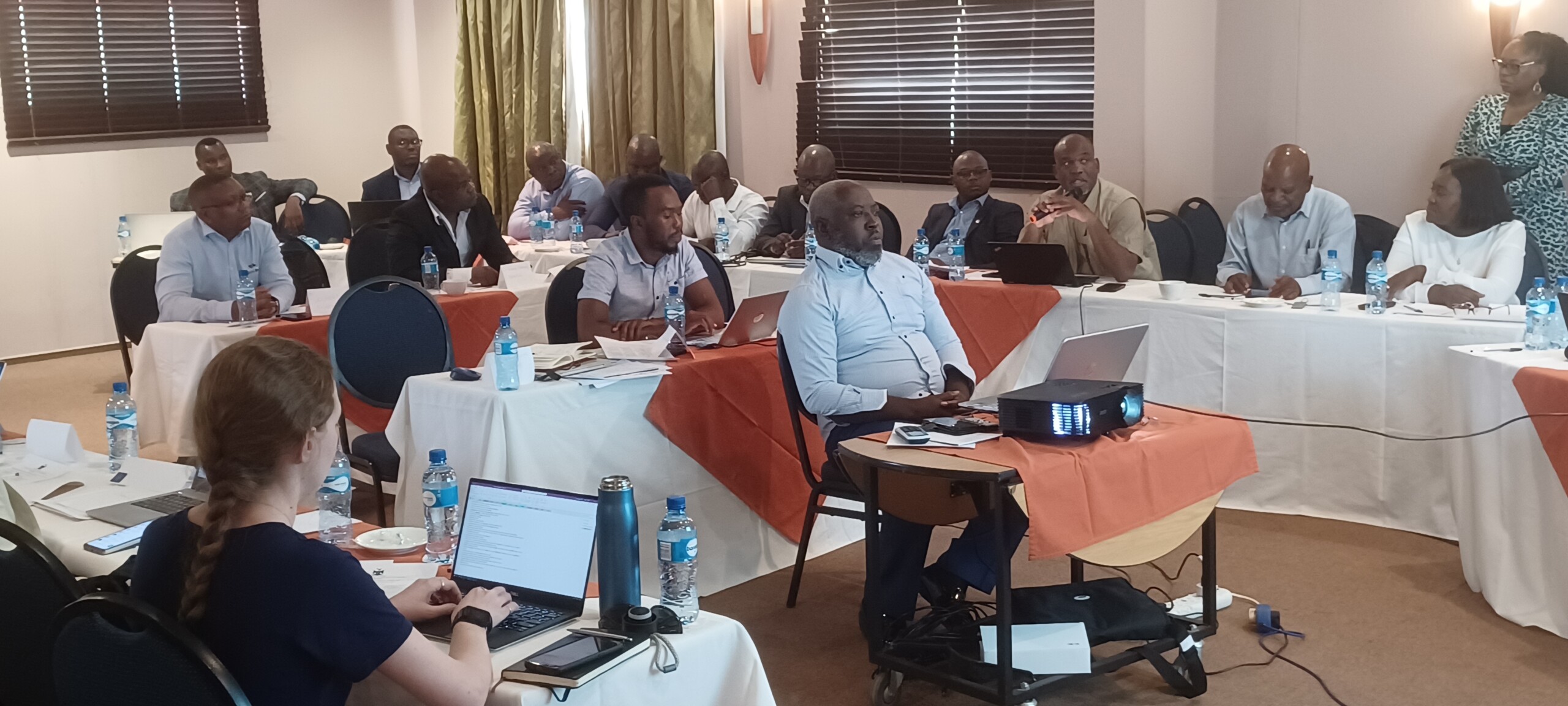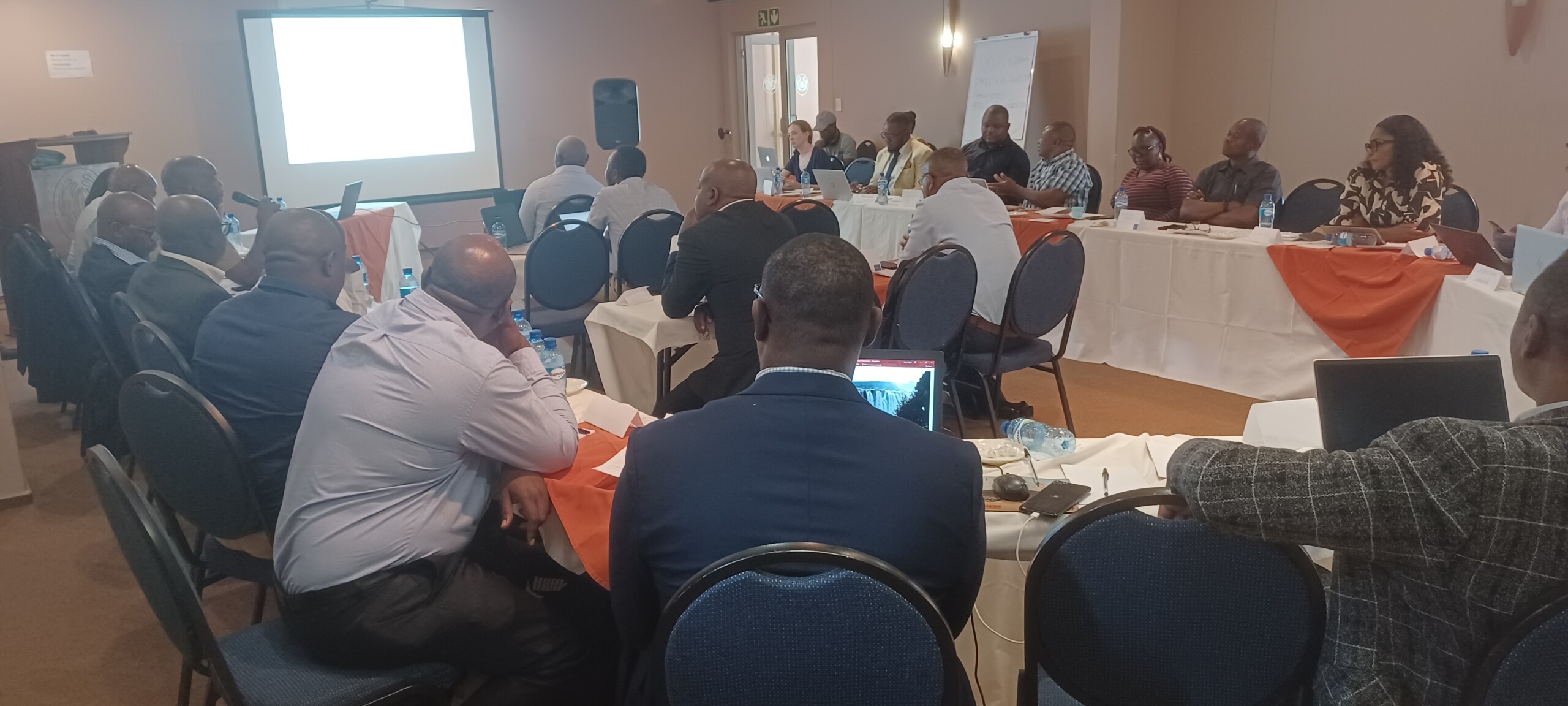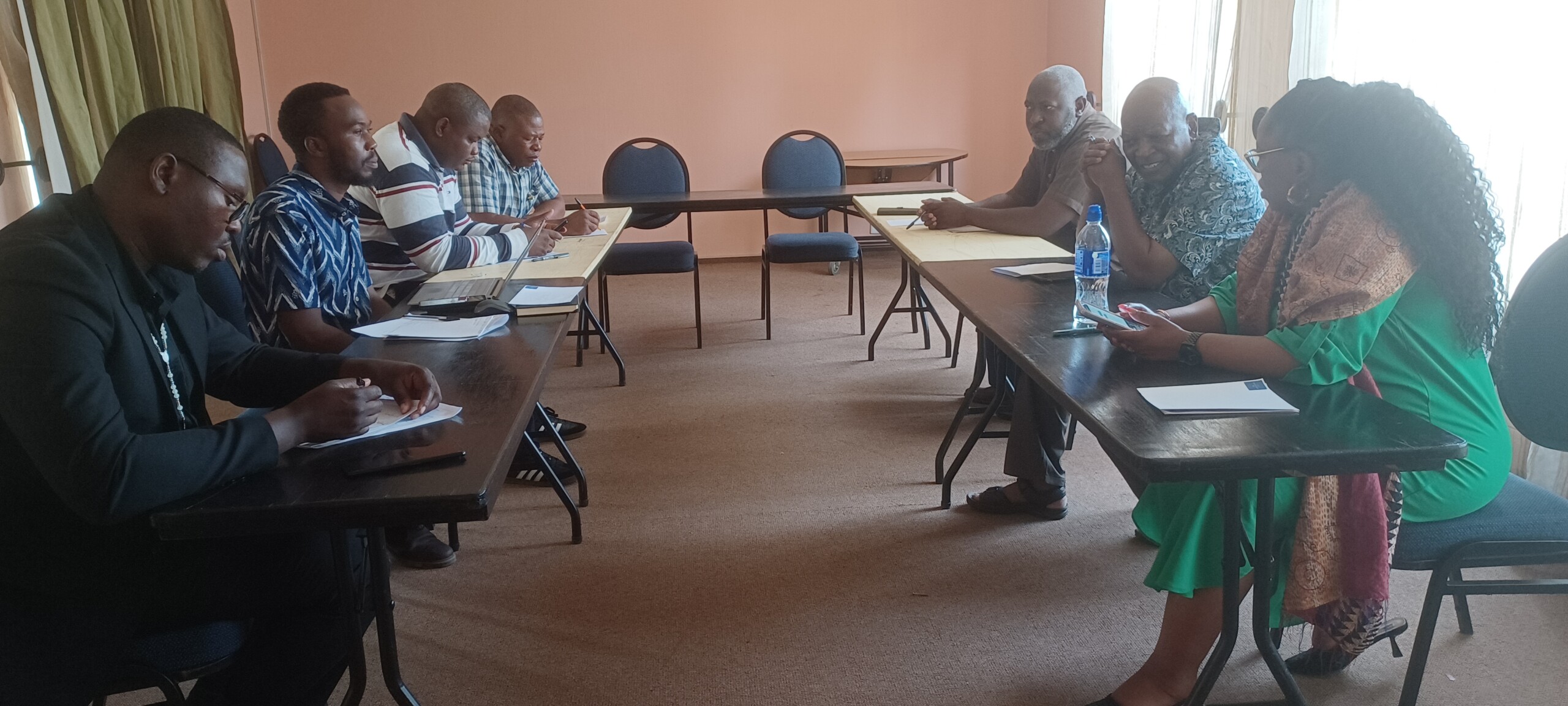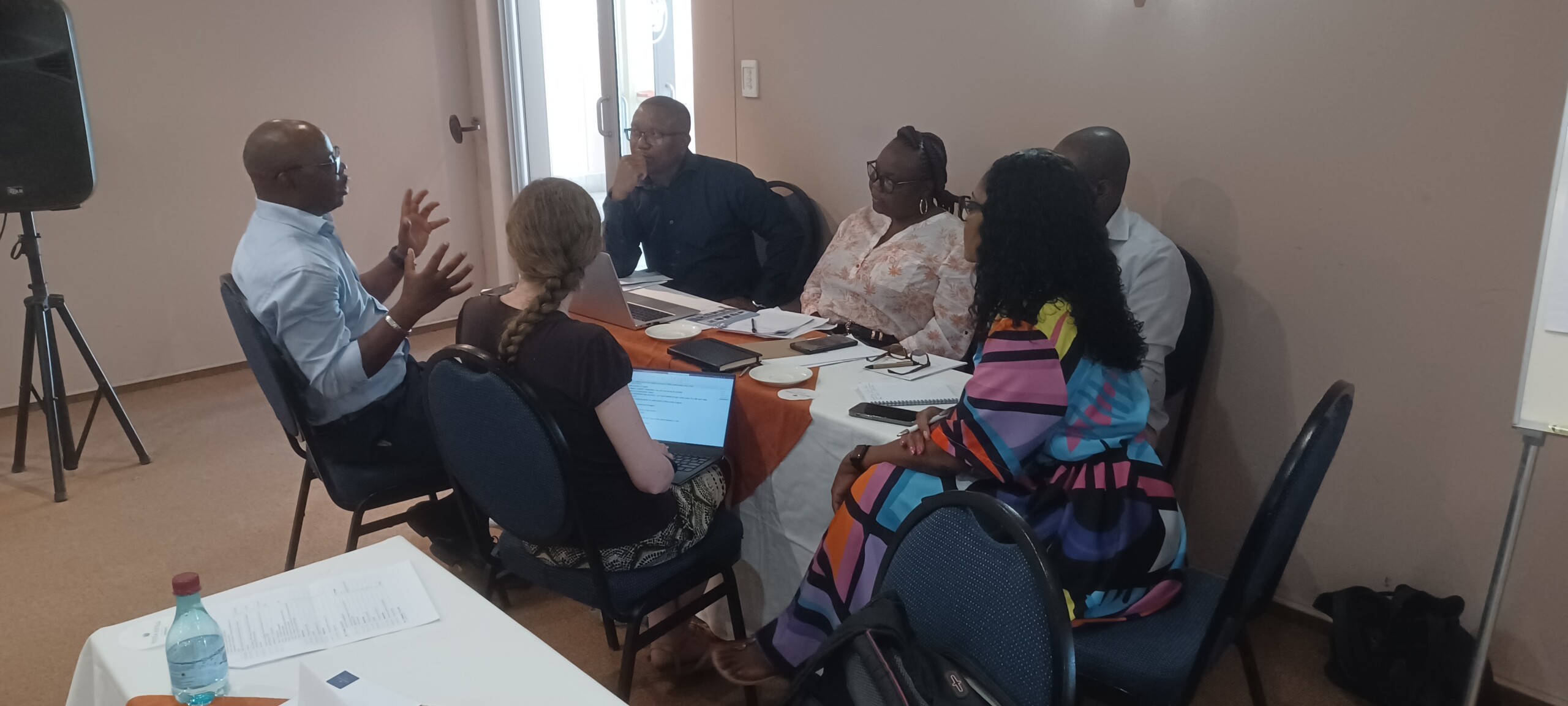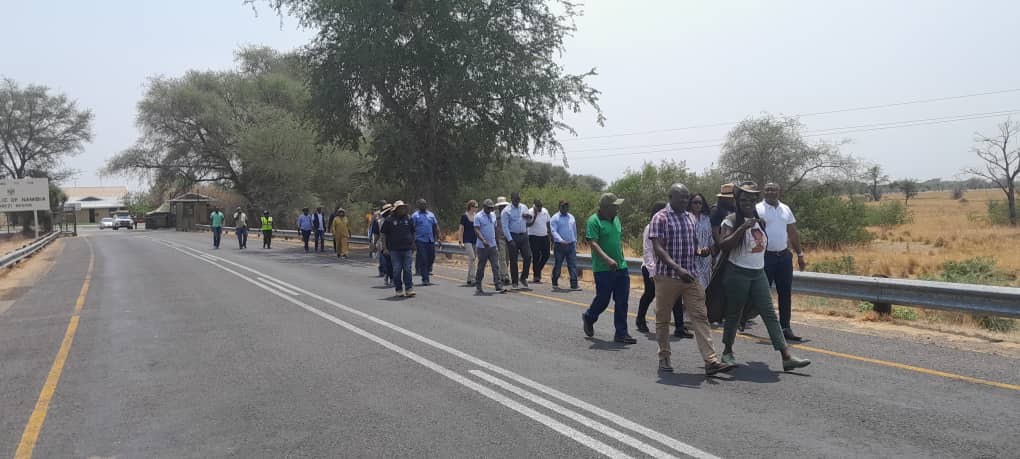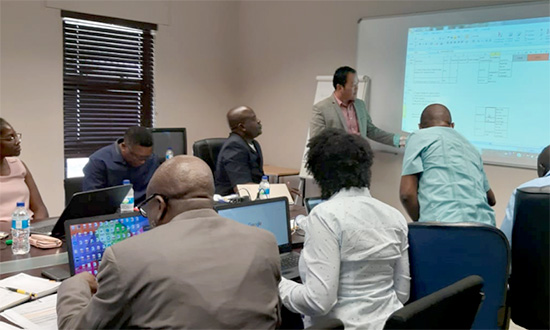
The Directorate of Veterinary Services of Namibia hosted a regional cross-border harmonisation meeting on Transboundary Animal Diseases (TADs), bringing together 28 senior veterinary officials, including Chief Veterinary Officers / WOAH Delegates from Veterinary Authorities of Namibia, Angola, Botswana, Zambia, and Zimbabwe, as well as representatives from partner organisations such as WOAH and the Kavango-Zambezi Trans frontier Conservation Area (KAZA). This event took place in Katima Mulilo, Zambezi Region, from 24 to 26 September 2023, marking a significant milestone after a gap without a physical meeting due to the COVID-19 pandemic.
Given the extensive shared borders and porous international boundaries among these countries, the cross-border harmonisation meeting aimed to address the animal health situation, focusing on Transboundary Animal Diseases (TADs) such as Foot-and-mouth disease (FMD), Contagious bovine pleuropneumonia (CBPP), Peste des petits ruminants (PPR), Highly pathogenic avian influenza (HPAI), and other important livestock and zoonotic diseases. The second objective of the meeting was to develop a harmonisation strategy and implementation plan for the control and eradication of CBPP and PPR through collaborative efforts across borders.
Engagement of the participants through a group exercise and discussion. Picture © Tenzin Tenzin (woah) 2023
Engagement of the participants through a group exercise and discussion. Picture © T. Tenzin (woah) 2023
On the first day, each Member presented and updated the meeting about the TADs status in their respective countries, along with the control measures. Major challenges and issues were identified, such as cross-border animal movements, and disease spread, disease outbreaks, shortage of vaccines and delayed vaccination (CBPP), and inadequate resources for TADs prevention and control.
Participants discussing on PPR eradication strategy plan. Picture © Tenzin Tenzin (woah) 2023
Day 2 focused on trade facilitation, issues related to the transit of animals across the border, harmonizing animal health infrastructure maintenance at borders, the KAZA animal health programme, and WOAH standards on CBPP eradication/recognition of freedom procedures. Discussions also included the need for a regional vaccine bank, synchronised prevention strategies, and guidelines for handling livestock theft along the borders.
Key aspects of the action plan for CBPP eradication strategies and PPR freedom were discussed in a group exercise, addressing surveillance, movement control, and laboratory diagnostic services.
Participants discussing on PPR eradication strategy plan. Picture © T. Tenzin (woah) 2023
Participants in group 3 discussing on issues and plan to strengthen laboratory diagnostics. Picture@ Tenzin Tenzin (WOAH) 2023.
Participants in group 3 discussing on issues and plan to strengthen laboratory diagnostics. Picture@ T. Tenzin (WOAH) 2023.
A dog-mediated rabies elimination programme and strategy were also discussed at the meeting, and the progress of Namibia’s rabies elimination project activities were shared with the participants.
In Africa, only Namibia and Zambia have a rabies control strategy endorsed by the World Organisation for Animal Health (WOAH) for eliminating dog-mediated human rabies by 2030.
The meeting participants during a field visit to Ngoma (Botswana-Namibia) border post. Picture © DVS, Namibia 2023
Day 3 involved a field visit to the Botswana-Namibia border post to understand the structures and issues at the border post concerning the facilitation of trade and animal movement across the border.
The participants engaged in a lively and open discussion, expressing a strong commitment to a regional approach for controlling Transboundary Animal Diseases (TADs) along the border, particularly eradicating CBPP and PPR to improve the economy of the farmers and eliminate dog-mediated human rabies by 2030.
The meeting was jointly funded by the WOAH-administered One Health approach towards rabies and TADs control project (funded by Germany) and the KAZA.
The meeting participants during a field visit to Ngoma (Botswana-Namibia) border post. Picture © DVS, Namibia 2023
